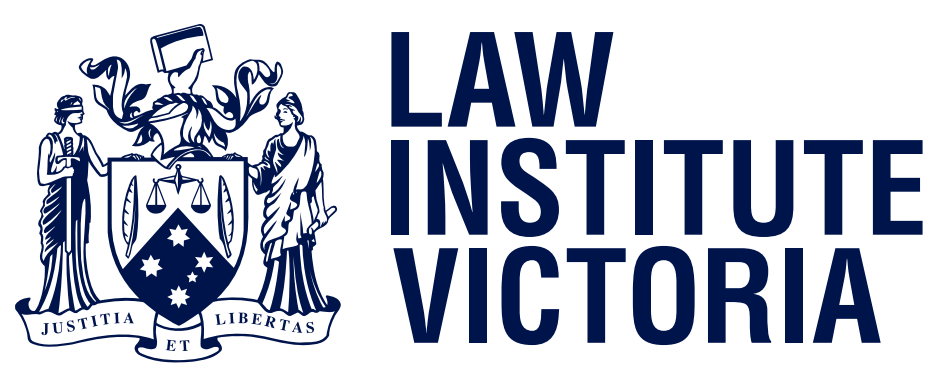Conveyancing & Property Law Services For Clients Across Eastern Melbourne
Conveyancing & Property Law Services For Clients Across Eastern Melbourne
Helping You With Property & Conveyancing Law
Here at Williams & Lay Lawyers, we understand that buying or selling property is a big decision and an important milestone for most people. It is essential you have the help of an experienced lawyer who can guide you through the complex process and ensure your legal rights are protected every step of the way.
All our conveyancing work is overseen by experienced lawyers who have over 40 years of experience in Conveyancing in Victoria. Our clients include first home buyers, property developers, real estate agents, banks, mortgage brokers and surveyors.
Property & Conveyancing Legal Services We Provide
Residential and commercial sales and purchases
Strata, rural and vacant land sales, and purchases
Auction purchases and sales
Off-the-plan purchases
Mortgages and refinancing
Leases
First home owners, including assistance with First Home Owners Grant
Property Subdivisions
Our conveyancing services are fixed-fee based, so there are no hidden charges. Our office is located in Lilydale, Victoria, and we can communicate by email, phone, and post so that you do not need to attend our office in person. However, if you would like to come into the office, you are more than welcome to between the hours of 9 am to 5 pm Monday to Friday. For a free quote or to arrange a free, no-obligation consultation with an experienced property lawyer, contact us today.
What Is Conveyancing
conveyancing is the area of property law that deals with the transfer of real estate between sellers and buyers, but what exactly is it? Conveyancing services are actually quite complex and have to take into account things like contract terms and conditions, mortgages, covenants, easements, caveats, the type of property title, the type of tenancy, local council regulations and zoning.
Conveyancing can be a complex and time-consuming process, but it is essential to ensure that the sale or purchase of a property is legal and binding. Although conveyancing can be a bit of a minefield, with the help of our team, you can be sure that your property transaction goes smoothly.
What Are The Steps In The Conveyancing Process
1. Generally, the process begins with the drawing up of a Contract for Sale. The Contract will include things such as:
- the street address and legal property title details
- the length of time between signing and completion of the contract
- what’s included or expressly excluded from the sale
- special conditions specific to this particular property
2. The purchaser needs to get legal advice, review the contract, arrange inspections, and start making loan arrangements before anything is signed.
3. The contract is signed by both parties and may be immediately binding, depending on the circumstances of the sale. You may, however, have a cooling-off period available or be able to withdraw from the contract under certain conditions, so it’s important that you know the exact terms and conditions written into the contract
4. There is a set length of time between the contract becoming binding and the contract being settled or completed. During this time, the purchaser of the property has a lot to do, including conducting various checks on the property, paying stamp duty, organising insurance, and getting any loan arrangements in order. The seller of the property should be making arrangements with their bank to have any mortgage discharged as well as making plans to move.
5. Before settlement, adjustments to the purchase price are agreed upon between the parties to cover council and water rates as well as other costs which may be allowed for in the contract.
6. On the day of settlement, everything has to be in place. The purchaser or the incoming mortgagee has to show up with the funds, and the seller or outgoing mortgagee has to turn up with the property title and the document/s needed to release the mortgage. Everything is handed over, including the keys, and the property is considered settled.
7. After settlement, the new owner needs to be registered as the owner on the title, and various government bodies need to be informed of the change in ownership.
First Home Buyers Guide
Are you a first home buyer? There’s a lot to think about when it comes to buying your first home, but are you wondering where to start? Who to ask for assistance? Don’t worry, you’re not alone there. Feel free to pick up the phone and speak to one of our friendly staff at Williams & Lay Lawyers for a no-obligation free chat about buying property in general.
Here are some useful checklists for buying property.:
Getting informed will make buying your first home easier. Here are some essential questions and answers to get you started.
Frequently Asked Questions For First Home Buyers
-
What does a property lawyer/conveyancer do, and when will I need one?
A property lawyer /conveyancer should assist you from the moment you start looking at properties. They can review Section 32 vendors’ statements and Contracts to ensure that you are aware of any risks and dangers associated with the property. They will liaise with the vendor’s legal representative and your bank and prepare all necessary documentation to have the property transferred into your name. It is best to engage with a property lawyer instead of a conveyancer because a lawyer will be able to deal with legal issues that arise. In contrast, a conveyancer may have to refer you to a lawyer causing inconvenience and additional costs to you.
-
What does the cooling-off period mean?
Once you sign a Contract of Sale, you have three business days from signing to cool off, meaning you can bring the contract to an end; however, if you do, the vendor can charge you a penalty of 0.2% of the purchase price. Cooling-off off period will not apply if you purchase at auction or within three days of the advertised auction date and will not apply in other circumstances.
Please contact us so we can assess your circumstances and provide you with advice.
-
Do I need to make the Contract subject to finance and building and pest?
We highly recommend making your offer subject to finance even if you have obtained a pre-approval of finance in place. Your pre-approval will be subject to the back completing a valuation of the property and may have other conditions.
We also highly recommend completing a building and pest inspection before an auction or before you negotiate to purchase a property by private sale. Alternatively, you can make your offer to purchase subject to a building and pest inspection. Please note that you will usually only be able to terminate the contract if the building and pest inspection reports designate a major structural defect or pest infestation.
Please contact us so we can ensure that the contract is completed correctly to protect you.
-
What is the First Home Owner Grant?
The First Home Owner Grant (FHOG) is a payment made to you if you are buying or building a new home valued up to $750,000. If you are eligible for the FHOG and the home you are buying is in regional Victoria, you will receive $20,000. If the home is not in regional Victoria, the grant is $10,000. This is subject to change and eligibility requirements; therefore, you should visit www.sro.vic.gov.au/first-home-owner or contract us.
-
What is the first home buyer stamp duty exemption/concession?
The first-home buyer duty exemption or concession is a one-off duty exemption for a principal place of residence property (PPR) valued up to $600,000 or a concession for a PPR with a dutiable value from $600,001 to $750,000. This duty exemption/concession is separate and distinct from the First Home Owner Grant. The grant is a payment made to you, whereas the first home buyer duty exemption/concession is a reduction in the amount of land transfer duty you pay.
Please visit www.sro.vic.gov.au/calculators to calculate an estimate on stamp duty.
This is subject to change and eligibility requirements; therefore, you should visit www.sro.vic.gov.au/first-home-owner or contract us.
-
Do I have to pay costs and disbursements up front?
No, generally, our costs and disbursements will be paid at settlement unless your matter does not proceed to settlement, in which case we will charge for the time we have spent working on your matter to that stage and any disbursements incurred.
-
What is first title insurance?
The first title is an insurance company that provides insurance cover for illegal building works, fraud and boundary issues. The premium is a once-off payment, generally paid at settlement, and you do not have to pay a premium if you make a claim.
Please contact us for more information or go to: www.firsttitle.com.au
Our office will provide you with more information during your conveyance, and if you would like to take out title insurance, we can arrange the policy on your behalf.
Navigate The Conveyancing & Property Law Landscape With Confidence
As buying property is one of the most significant financial decisions you will make, it’s essential that you get expert advice; legal expertise and diligence are well worth the cost. Call our team today to get started.
Quick Links
Contact Information
Phone: 03 9737 6100
Email: info@williamslay.com.au
Address: 13 Castella Street, Lilydale, Victoria - 3140
ABN: 86 650 898 418
Business Hours
- Mon - Fri
- -
- Sat - Sun
- Closed
Public holidays: Closed






Our Privacy Policy
We are committed to providing quality services to you, and this policy outlines our ongoing obligations to you in respect of how we manage your Personal Information.
We have adopted the Australian Privacy Principles (APPs) contained in the Privacy Act 1988 (Cth) (the Privacy Act). The NPPs govern the way in which we collect, use, disclose, store, secure and dispose of your Personal Information.
A copy of the Australian Privacy Principles may be obtained from the website of The Office of the Australian Information Commissioner at
www.aoic.gov.au
Liability limited by a scheme approved under Professional Standards Legislation





